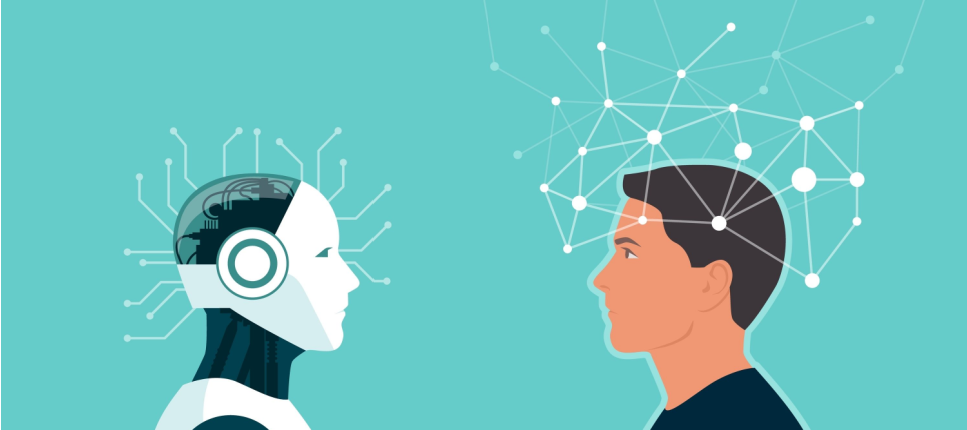In a world where the boundaries of knowledge are constantly expanding, staying ahead of the curve is not just an option, it’s a necessity.
Delve into the fascinating intersection of educational technologies, workplace transformation, upskilling, reskilling, neuroscience, artificial intelligence, virtual reality, and the vast universe of learning.
Cognitive Bias in Education: Test Your Knowledge!
Do you know what a cognitive bias is? Do you know which ones can interfere in the teacher-learner relationship and have significant effects on learning? Do you have any idea of how a teacher can avoid them? Test your knowledge by answering the following five questions.
5 Surprising Facts About Our Cognitive Processes
Are you familiar with the cognitive processes of attention, working memory, inhibition, and metacognition? If you already have an idea of what they do and how they work, you may not know what neuroscience has discovered about them in recent years. To satisfy your curiosity and enhance your learning, here are five surprising and useful facts about some of our cognitive processes.
The Crucial Role of Sexual Violence Awareness Training in Universities
In an age where conversations around consent and gender and sex equality are more prominent than ever, the implementation of Sexual Violence Awareness Training in universities has become not just relevant but necessary. In Canada, the approach to mandating sexual violence awareness training and implementing policies in universities varies by province, reflecting diverse legal frameworks and institutional responses. However, these programs are pivotal in promoting a safe, supportive, and inclusive campus environment for all students and staff.
Digital Learning from the Perspective of Affective and Social Neuroscience
You're alone in front of your computer, in the middle of an online learning session, and it doesn't involve any human interaction, either with a teacher or with other learners. Are you likely to interact with your computer as if you were social partners, as you would with your peers in a traditional classroom? In light of the latest findings in social and emotional neuroscience, it seems quite plausible. Not only is this discovery surprising and interesting in terms of what it tells us about human behaviour, but it also offers us a new angle from which to explore and improve the digital learning experience.
Five Tips for Effective Employee Onboarding
Onboarding, just like anything in our lives that marks the beginning of a new chapter, can be filled with anticipation, discovery, and, inevitably, a bit of apprehension. Creating an effective process is not only crucial for employee retention but also for fostering a productive and happy workplace. Let's explore some ways to optimize your onboarding process.
3 Tips on How to Maintain Motivation While Studying
Maintaining high levels of motivation during study sessions is often a struggle; however, backed up by neuroscience, a few study tips could provide a helpful hand. These approaches are grounded in a deep comprehension of brain function, utilizing this understanding to enhance both learning effectiveness and the drive to continue studying.
5 Surprising Facts About Attention
Necessary for learning, our attention span is also essential for accomplishing our everyday tasks. To preserve and cultivate this precious faculty, which is particularly vulnerable in the digital age, it's essential to understand better its mechanisms to identify the factors we can influence and those we'd better let go of. Here are five surprising facts about attention to help you understand it better!
Stress and Learning: Test Your Knowledge!
Do you know the physiological difference between positive and negative stress? Do you understand the characteristics that can transform a situation into a source of stress? Can you tell the difference between absolute and relative stress? Do you know stress's proven and sometimes surprising effects on memory and learning? Test your knowledge by answering the following five questions.
2024 and the Future of Education
As we embark on 2024, together with building the list of resolutions –personal or company-level – it is also an excellent time to examine the emerging educational trends poised to influence our approaches to learning and teaching. All in all, these trends not only mirror the evolving landscape of education but also predict a transition towards experiences that are increasingly inclusive, adaptable, and learner-centred.
What AI Can’t Do (Yet)
The performance of generative artificial intelligence (AI), which the general public has been discovering since the release of ChatGPT, is impressive, and not a week goes by without the appearance of new tools using this technology. Based on training data and thanks to a hyper-powerful mathematical system, generative AI can understand a complex query and statistically predict the best possible response, whether this involves solving a mathematical or scientific problem, coding, or producing text, image, audio or video. While AI experts predict it could surpass us on several fronts in the coming years or decades, it currently lacks some of the skills needed to compete with us on every cognitive terrain.










